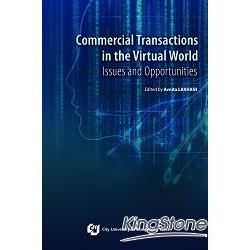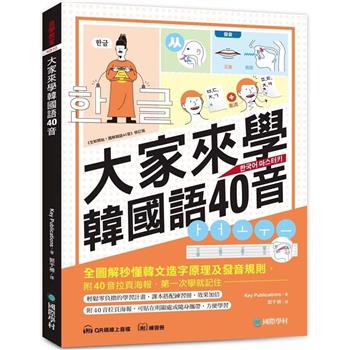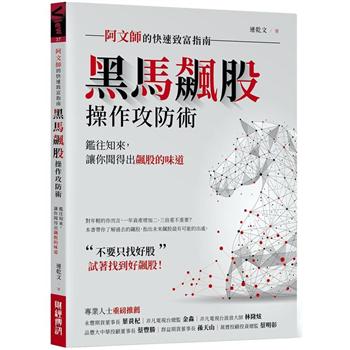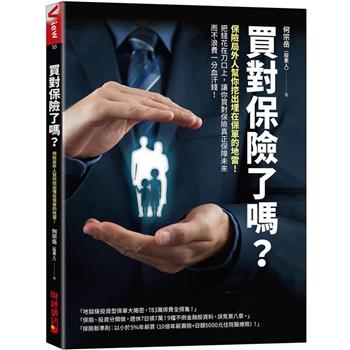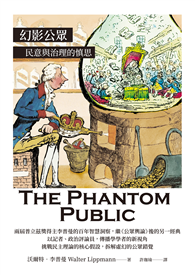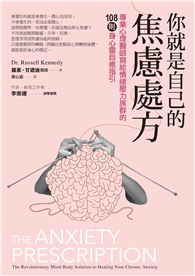INTRODUCTION
There is a growing trend in virtual world commercial transactions. In order to protect people’s rights in the virtual world and keep pace with innovative trading demands, it is essential for us to understand the commercial implications of virtual world economies by evaluating the effectiveness of the existing laws, practices, and policies in business, technology, intellectual property and related fields.
This book, in 11 sections, investigates the issues and opportunities associated with commercial transactions in the virtual world. In 29 detailed essays, this book analyses every facet of virtual world transactions, including the nature of virtual commercial transactions, virtual goods and services, transfer of virtual property, issues of negotiable instruments, remedies for buyers and sellers in the virtual world, consumer protection, dispute resolution and other related topics. Each of these sections both contributes to and advances the field of commercial law and related disciplines.
This book is an excellent source of reference for students, practitioners, academics, policy makers, and researchers as well as anyone with an interest in the exciting developments of commercial law in cyberspace.
作者簡介:
THE ANTHOR
Dr.Lakhani has a BA (Canda), JD/MSEL cum laude (USA), LLM (USA) and PhD(Australia).She is admitted to the bear of the State of New York and the Bar of the Supreme Court of the United States. She is an accredited mediator with HKIAC and HKMAAL and holds member status with the Chartered Institute of Arbitrators(MCIArb). Dr. Lakhani has over 20 years of international professional working experience. She has published a variety of articles dealing with critical international issues in both law and conflict resolution journals.
In addition to numerous professional and academic as well as several academic appointment at City University of Hong Kong(CityU).Dr. Lakhani is the Associate Program Leader of the Master of Laws in Arbitration and Dispute Resolution (LLMArbDR) Program at City University of Hong Kong School of Law. Most recently, she is also the Editor-in-Chief of the Journal of Law, Technology and Public , an important initiative of the Law and Technology Solutions Center, a project funded through the office if the Provost’s Idea Incubator Scheme under CityU’s Discovery-Enriched Curriculum.
作者序
PREFACE
I am pleased to be invited to provide some context for Commercial Opportunities in the Virtual World, Issues and Opportunities, edited by Prof. Avnita Lakhani of the School of Law of City University of Hong Kong (CityU). In the 2012-13 academic year, all publicly funded Hong Kong universities, including CityU, underwent an historic transition from a 3-year to a 4-year undergraduate curriculum. CityU boldly used this opportunity to create a unique Discovery-enriched Curriculum (DEC). The simple goal of the DEC is for all students to have the opportunity to make a discovery/invention/creative project in their discipline. By learning what it means to create new knowledge in their field and then by communicating, curating and cultivating that knowledge to benefit society, students experiencing the DEC have the chance to explore the unknown and to take measured risks under the guidance of their staff mentors. These characteristics of the DEC should better prepare our students for the extraordinarily dynamic world they will enter as professionals.
Prof. Lakhani’s edited volume exemplifies the spirit and objectives of the DEC. Prof. Lakhani and her students have explored in detail an exciting new area of scholarship that lies at the intersection of IT law, business law and commercial law. They have examined a wide range of issues that will shape how this emerging field of virtual commercial transactions develops. By publishing their findings in this book and presenting some of this work at various international conferences, our students have also had a chance to learn how to communicate, curate, and cultivate their new-found knowledge so that others may build upon it. This blending of teaching, learning and research in which students are partners in the discovery process has broad applicability, as illustrated by the interdisciplinary nature of this topic. We hope that readers will benefit both from the content of this volume as well as from an understanding of the DEC that helped shape it. I wish all who contributed to this book continued success in exploring new frontiers of knowledge.
Arthur B. ELLIS
Provost, City University of Hong Kong
May, 2014
PREFACE
I am pleased to be invited to provide some context for Commercial Opportunities in the Virtual World, Issues and Opportunities, edited by Prof. Avnita Lakhani of the School of Law of City University of Hong Kong (CityU). In the 2012-13 academic year, all publicly funded Hong Kong universities, including CityU, underwent an historic transition from a 3-year to a 4-year undergraduate curriculum. CityU boldly used this opportunity to create a unique Discovery-enriched Curriculum (DEC). The...
目錄
CONTENTS
Part I Introduction
1. Commercial Transactions in the Virtual World:Introduction
—Avnita LAKHANI
Part II Virtual Commercial Transactions—Industry Perspective and Issues
2. The Nature of the Virtual Industry Today: Issues and Recommendations
—Jonathan Ying Kit TONG
3. Virtual Commercial Transactions: A Multi-Jurisdiction Industry Perspective
—Bobo Po Wan CHEUNG
Part III The Nature of “Goods” in the Virtual World
4. The Nature of “Goods” and the Bundle of Property Rights in the Virtual World
—Kwan Yee CHEUNG
5. Legal Protection for Virtual Property Rights: Rationale, Obstacles and Proposals
—Lawrence Ka-yeung LAU
6. The Nature of “Goods” in the Virtual World:Arguing for Recognition of Real Property Rights in Virtual Goods
—Elke Ngai Ki LAU
7. Massively-Multiplayer Online Role Playing Games and Ownership of Virtual Property:A Multi-Jurisdiction Perspective
—Matthew Sin Lun MOK
8. Nature of Virtual Goods in a Virtual World:Ownership, Possession, or Nothing?
—Michelle Wing Chi AU
Part IV Sale of Goods/Services Contract in the Virtual World
9. Improbable Real Sale of Virtual Goods
—Felix Chin Kiu CHEUNG
10. Application of Real World Laws to Virtual World Sale of Goods and Services Contracts
—Ken Wai Kin TANG
11. Redefining the “Sale of Goods Contract” in the Virtual World: A US Legal Perspective
—Darren Tak Long PO
Part V Transfer of Property and Risk in the Virtual World
12. Transfer of Risk in Real World Commercial Transactions and Its Application to Virtual Transactions
—Cybele Cin Cam LO
13. Transfer of Property and Risk in the Virtual World: Challenges to the Current Legal Framework
—Winnie Wing Yee CHUNG
Part VI Payment Methods and Issues in Virtual World Transactions
14. Payment Methods and Issues in Virtual World Commercial Transactions
—Sherwin Chiu Wing YAM
15. Supervising Economic Transactions and Payments in the Virtual World: An Asia-Pacific Perspective
—Raymond SIN
Part VII Remedies for Buyer/Seller in the Virtual World
16. Remedies Available for Buyers and Sellers in Virtual Commercial Transactions
—Austin YIU
17. Second Life, Second Remedies
—Anita JAY
Part VIII Use of Real and Quasi Securities in Virtual World Transaction
18. Real and Quasi Security in Virtual World Transactions: Charting New Reforms in Law for a New Reality
—Brian Man Ho CHOK
19. Taking Security over Virtual Assets: Is It Really Practical?
—Leo Lut Pong YAU
20. Securing Virtual World Debts via Real and Quasi Security:Challenges and Potential Solutions
—Karolina LARSSON
Part IX Use of Real and Quasi Securities in Virtual World Transaction
21. The Regulation of Banks and Money Lending Activities in the Virtual World
—Joyce Yuk Han LIANG
Part X Consumer Protection in Virtual World Transactions
22. The Applicability of Real World Laws in Protecting Consumers of Virtual World Transactions: An Analysis of Hong Kong and the United States
—Michael Ka Hei LAU
23. Consumer Protection in Virtual World Transactions:Are Players-Consumers Adequately Protected under the Current Regimes of Property Law and Contract Law?
—Silvia Kin-man TANG
24. Virtual World EULAs and Transactions: Consumer Friendly or Void of Consumer Protection?
—Vimal Deepak SADHWANI
25. EULAs vs. Consumer Rights and Protections in Virtual World Commercial Transactions: Finding a Healthy Balance
—Mitchell Kwun Yin LI
Part XI Dispute Resolution/ADR in theVirtual World
26. Operators vs. Users: A Comparative Analysis of the Use of ADR in Virtual World Disputes
—Carol Yan Lin CHOW
27. Resolving Disputes of the Virtual World: An Analysis of Jurisdiction and ADR
—Timothy Lok Tim HO
28. Avatar vs Avatar Disputes: The Future for Arbitration in the Virtual World
—Elaine Yuet Ling YUEN
29. Application of ADR and ODR to the Virtual World:The Quest for Best Practices and Solutions
—Camilla VENANZI
CONTENTS
Part I Introduction
1. Commercial Transactions in the Virtual World:Introduction
—Avnita LAKHANI
Part II Virtual Commercial Transactions—Industry Perspective and Issues
2. The Nature of the Virtual Industry Today: Issues and Recommendations
—Jonathan Ying Kit TONG
3. Virtual Commercial Transactions: A Multi-Jurisdiction Industry Perspective
—Bobo Po Wan CHEUNG
Part III The Nature of “Goods” in the Virtual World
4. The Nature of “Goods” ...
